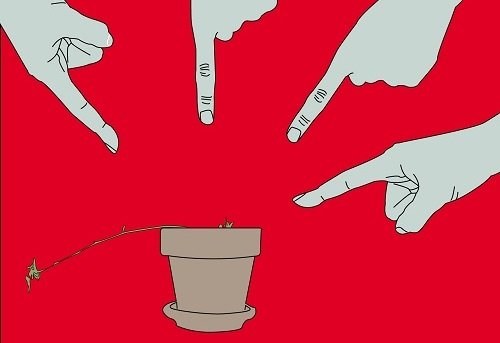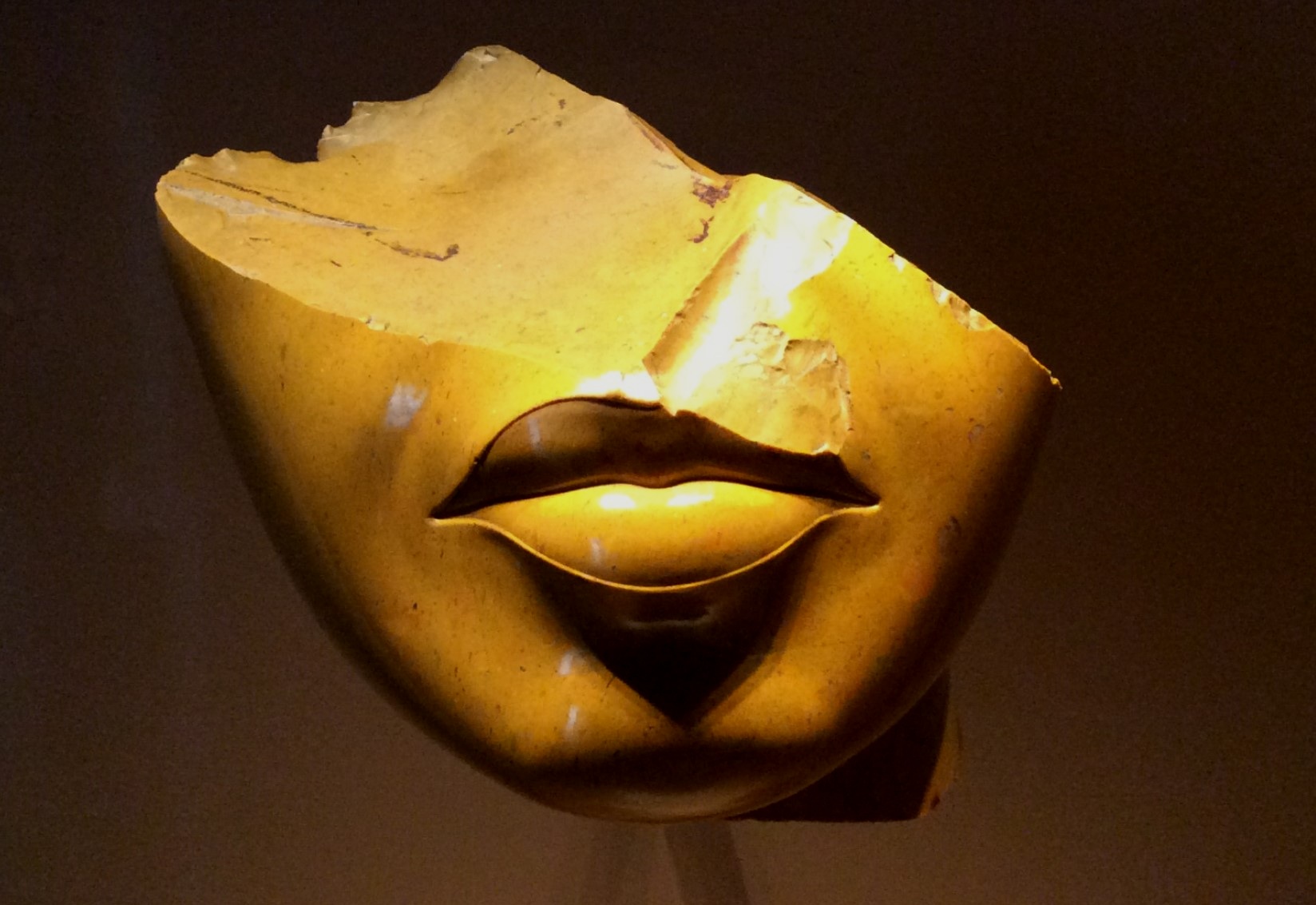The Emotions of God
How Our Emotions Are Windows Into God
Photograph: This is the interior of the oldest Syrian Orthodox monastery, Mor Gabriel, in southeastern Turkey. It was founded in 397 AD, and continues amidst gardens and orchards. Photo credit: Ugur Ozden, all rights reserved, used with permission.
God Has Emotions? So What?
The Emotions of God is a curriculum for small group discussion. It is a subset of the Shame and Glory material.
Scripture often invites us to consider emotional language as it applies to God. Jesus also demonstrated very human emotions and called forth our participation in God’s joy, sorrow, etc. These passages give us valuable insights into God’s character and love for us.
Part of our life with Jesus is to allow him to shape and reshape our emotions, that we would respond to others and circumstances with the consistency of Jesus. This guide helps us do that. This video clip is from our 2019 Conference: Healing Atonement.
Messages and Essays on the Emotions of God and How Our Emotions Are Windows Into God
1. The Longing and Joy of God for the Lost, Part 1 (Luke 15:1 - 10)
2. The Longing and Joy of God for the Lost, Part 2 (Luke 15:11 - 32)
3. The Tears and Anger of God for Humanity (John 11:20 - 44)
4. The Yearning of God (Luke 22:14 - 23)
5. The Gut-Turning Compassion of God (Luke 10:25 - 37; Matthew 9:36; 14:14; 15:32; 20:34)
6. The Eagerness of God to Help Us (Luke 11:1 - 13)
7. The Grieving of God (Ephesians 4:29 - 32)
8. The Jealousy of God (Exodus 20:1 - 6; Deuteronomy 4:1 - 24)
9. The Pleasure of the Father in the Son (Matthew 3:13 - 4:11; John 8:28 - 29)
Other Resources on the Emotions of God
Top Resources, Patristic
Post-Apostolic Church, Early Christianity On: The Emotions of God the Father. Post-Apostolic Church, Jun 29, 2019. A video which gives an excellent introduction to the two main views in early Christian writers: God’s emotions are figurative language for God’s activity and intentions towards us, and God’s emotions as real but not evil — as there were schools of Greek thought which made rationality good and emotionality evil.
Top Resources, Pastoral
Soren Johnson, 2018 and the Gift of Tears. The Arlington Catholic Herald, Dec 27, 2017. Johnson cites Jesus’ statement, “Blessed are those who mourn” and Paul’s admonition, “Weep with those who weep” as anchor points, and Ephrem the Syrian as illustrative, with grieving over 2018. See also Frederic and Mary Ann Brussat, The Gift of Tears. Spirituality and Practice. The Brussats cite early Christians and Jewish reflection on tears. Deacon Tom, The Gift of Tears. Catholic Mom, Jul 10, 2009. Deacon Tom, More on the Gift of Tears. Catholic Mom, Oct 20, 2012. Deacon Tom draws on insights from Teresa of Avila. Jeannie Ewing, Demystifying the Gift of Tears. Integrated Catholic Life, Aug 10, 2016. Ewing gives helpful thoughts on discernment. Cindy Wooden, Theology of Tears: For Pope, Weeping Helps One See Jesus. Catholic News Service, May 5, 2016. Wooden draws heavily on Pope Francis’ comments and actions.
Patristic and Pre-Reformation Resources on the Emotions of God
Clement of Alexandria, from Rod, Clement of Alexandria and the Good News About God's Emotions. And Ours. Political Jesus blog, Oct 6, 2014.
Athanasius of Alexandria, Against the Heathen on the corruption and healing of our desires; a pdf copy of select quotations from Against the Heathen / Contra Gentes
Athanasius of Alexandria, Discourses Against the Arians 3 discusses Jesus healing human desires from within our humanity, as a human being; see paragraphs 31 - 41 and 54 - 55
Ambrose of Milan, On the Holy Spirit book 1, paragraph 66 discusses Jesus setting free our affections, though with no further explanation
Ambrose of Milan, Exposition of the Christian Faith book 5, paragraph 53 says, “Many things therefore we read and believe, in the light of the sacrament of the Incarnation. But even in the very feelings of our human nature we may behold the Divine Majesty”
Lactantius, On the Anger of God. Lactantius discusses emotions of God as not simply metaphorical language, see especially chapters 15 - 16
John Chrysostom, Homily 2 on Philippians. John Chrysostom discusses the "tender mercies" or "affections" of Christ Jesus shared with us. See also John Sanidopolous, Divine Eros by John Chrysostom. blog, Apr 1, 2014)
John Chrysostom, Homily 13 on Romans. John Chrysostom attributes desires to the body, and rationality to the soul. This can be critiqued as an oversimplification, but the important point here is that desire is original, the disorder of desire is the result of the fall and our choice.
“for when the body had become mortal, it was henceforth a necessary thing for it to receive concupiscence, and anger and pain, and all the other passions, which required a great deal of wisdom to prevent their flooding us, and sinking reason in the depths of sin. For in themselves they were not sin, but when their extravagance was unbridled, it had this effect. So... desire is not sin... Paul... is not finding fault with the body, but pointing out the soul’s superiority. For the whole duty of pilotage has been put into its hands... Paul here points out, giving the governing power to the soul.”
Cyril of Alexandria, Commentary on John's Gospel on desires and Jesus' redemption of human desire. See Andrew Mellas, “The Passions of His Flesh”: St. Cyril of Alexandria and the Emotions of the Logos. Phronema | Academia.edu, 2014. Mellas does an excellent job explaining Cyril’s commentary and examination of Jesus’ emotions.
John Cassian, Conferences on desires and free will
Peter Brown, Augustine of Hippo: A Biography. University of California Press | Amazon page, 2000. Brown includes very good quotes from Augustine on desires, which are excerpted here.
Paul Blowers, Gentiles of the Soul: Maximus the Confessor on the Substructure and Transformation of Human Passions. Journal of Early Christian Studies, Spr 1996. Blowers discusses passions, desires, and free will in the thought of Maximus the Confessor, the church’s leading theologian in the 6th century.
Paul Blowers, The Dialectics and Therapeutics of Desire in Maximus the Confessor. Vigilae Christianae, 2011. Studies Maximus the Confessor's Ambiguum 7 as both a critique of Origen’s cosmology and teleology, using Gregory of Nazianzus’ Oration 14 about life in the body, with special attention given to human desire. Human desire and emotion is integral to human volition and freedom - and central to our partnership with God on the road to deification. Maximus also engages with Gregory of Nyssa to develop “a sophisticated dialectics and therapeutics of desire that integrates important perspectives of the Confessor's anthropology, christology, eschatology, and asceticism.”
Martin Hinterberger, "Emotions in Byzantium," edited by Liz James, A Companion to Byzantium. Wiley-Blackwell | Amazon page, 2010. Hinterberger is a sensitive reader of patristic and Byzantine writings. While Byzantine Christian interpretations of emotions tended to be pragmatically framed in the negative. e.g. anger, sloth, lust, etc., the positive virtues were assumed. Hence, we can discern that the now-controversial Greek term apatheia was not used to mean indifferent, or unfeeling. It referred to how decision-making was to be driven by virtues and not the passions – ta pathe. – i.e. the pathological emotions.
John W. O'Malley, The First Jesuits. Harvard University Press | Amazon page, Jan 1995.
Modern Resources on the Emotions of God
Jonathan Edwards, Religious Affections: A Christian's Character Before God. Regent College Publishing | Amazon page, 1794.
B.B. Warfield, The Emotional Life of Our Lord. Monergism Blog. Note that I disagree with Warfield when he says in his last paragraph, "It is not germane to the present inquiry to enter into the debate as to whether, in assuming flesh, our Lord assumed the flesh of fallen or of unfallen man. The right answer, beyond doubt, is that he assumed the flesh of unfallen man..." See the quotes from Cyril of Alexandria and Athanasius, above, and citations from the early church that he took fallen humanity.
C.S. Lewis, Surprised by Joy: The Shape of My Early Life. HarperOne | Amazon page, 1952; reprinted 1995. Lewis gives an account of how Jesus guided him to become a Christian largely through his own desires.
C.S. Lewis, The Four Loves. HarperOne | Amazon page, 1960; reprinted 2017. Lewis discusses proper loves and the imbalances of loves
C.S. Lewis, The Weight of Glory and Other Addresses. HarperOne | Amazon page, 1949; reprinted 2001. See especially the titular essay, "The Weight of Glory".
C.S. Lewis, Love is Vulnerable. Zen Pencils.
J.R.R. Tolkien, The Return of the King. Clarion Books, 1955; reprinted 2020. A quote from the chapter called “The Houses of Healing,” where the hobbits gives a touching experiential reflection on how love grows.
Philip Nunn, Adopting the Mindset of Jesus: A Study of the Feelings of Jesus as Recorded in the Gospel of Mark. Philip Nunn, Oct 2003.
Paul Metzger, The Halfway House of Hedonism: Potential and Problems in John Piper's Desiring God. Crux, Winter 2005.
G. Walter Hanson, The Emotions of Jesus, and Why We Need to Experience Them. Christianity Today, Feb 3, 1997.
Timothy Gorringe, The Education of Desire: Toward a Theology of the Senses. Trinity Press | Amazon page, 2001.
Paul Gavrilyuk, The Suffering of the Impassible God. pdf book, 2004. Is a helpful Orthodox corrective to Roman Catholic Thomas Weinandy, Does God Suffer? First Things, Nov 2001.
Father George Morelli, Orthodoxy and the Science of Psychology. Orthodoxy Today, May 8, 2006.
Father George Morelli, The Ethos of Orthodox Christian Healing. Orthodoxy Today, Dec 21, 2006.
William Cavanaugh, Being Consumed: Economics and Christian Desire. Eerdmans | Amazon page, Mar 17, 2008. See review by David Opderbeck, William Cavanaugh, Trade, and Scarcity. David Opderbeck Blog, Jun 14, 2017.
Kallistos Ware, Personal Experience of the Holy Spirit According to the Greek Fathers. Silouan Thompson blog, Aug 5, 2008.
James K. A. Smith, Desiring the Kingdom: Worship, Worldview, and Cultural Formation. Baker Academic | Amazon page, 2009.
Rene Girard, On the Decalogue 1. Pierpaolo Antonello, video uploaded Aug 21, 2009.
Jonah Lerner, Depression's Upside. New York Times, Feb 25, 2010. Lerner includes links between depression and mental exhaustion, depression and brain activity, depression and creative problem solving.
Elizabeth Marquardt, The Spirituality of Children of Divorce. Huffington Post, Dec 22, 2010.
Kenneth Pargament, Spiritually Integrated Psychotherapy. The Guilford Press | Amazon page, Jul 2011.
John Tierney, Envy May Bear Fruit, but It Also Has an Aftertaste. New York Times, Oct 10, 2011.
Derrick, David Bentley Hart on Impassibility as Joyful, Transcendent Love. A Greater Courage blog, Apr 12, 2012.
Robert C. Crosby, The Emotional Jesus: His Ups and Downs. Patheos, Jun 15, 2012.
N.T. Wright and Gary Morson, What Gods Do We Believe in Now? Veritas Forum, Nov 12, 2012.
Father George Morelli, Orthodox Christian Spirituality and Cognitive Psychotherapy, part 2: Bio-Cultural Elements. Orthodoxy Today, Feb 2, 2013.
Father George Morelli, Orthodox Christian Spirituality and Cognitive Psychotherapy, part 3: The Passions. Orthodoxy Today, Sep 1, 2013.
Father George Morelli, Orthodox Christian Spirituality and Cognitive Psychotherapy, part 4: The Healing Potential of Faith. Orthodoxy Today, Sep 1, 2013.
David Bentley Hart, Beauty, Being, and Kenosis: The Aesthetics of the Incarnation. Biola University, May 14, 2013. Hart’s video lecture.
Rod Dreher, But Now He Sees. The American Conservative, Nov 13, 2013.
Father James Martin, S.J., Advent is About Desire. Huffington Post, Nov 29, 2013.
Rod Dreher, To Know is to Love is to Know. The American Conservative, Jan 8, 2014.
Andrew Mellas, “The Passions of His Flesh”: St. Cyril of Alexandria and the Emotions of the Logos. Phronema | Academia.edu, 2014. Mellas does an excellent job explaining Cyril’s commentary and examination of Jesus’ emotions.
Malcolm Gladwell, How I Rediscovered Faith. Relevant Magazine, Jan/Feb 2014.
David Brooks, Alone, Yet Not Alone. New York Times, Jan 27, 2014.
Eve Tushnet, Coming Out Christian: How Faithful Homosexuals Are Transforming Our Churches. The American Conservative, Jan 29, 2014.
Tom Belt, Vulnerability: The Capacity of Finitude to Bear God's Glory, Part 1. An Open Orthodoxy blog, Apr 1, 2014. and Part 2. An Open Orthodoxy blog, May 13, 2014.
Rod Dreher, Dante Saved My Life: A Midlife Crisis Is Cured by The Divine Comedy. The American Conservative, Apr 9, 2014.
Ian Marcus Corbin, Entranced by Reality: Albert Camus. The American Conservative, May 15, 2014.
Gordon Marino, A Life Beyond 'Do What You Love'. New York Times, May 17, 2014.
Father Stephen Freeman, Tolkien's Long Defeat. Ancient Faith blog, Jul 15, 2014.
Yuval Levin, Taking the Long Way: Disciplines of the Soul Are the Basis of a Liberal Society. First Things, Oct 2014.
Joshua Ryan Butler, The Skeletons in God’s Closet: The Mercy of Hell, the Surprise of Judgment, the Hope of Holy War. Thomas Nelson | Amazon page, Oct 2014. From p.16 – 17: “Hell is not a place God creates to torture people, but a power God excludes to protect the flourishing of the new creation. Its construction is not a chamber God locks from the outside, but a coffin we latch from the inside through our desire for freedom from God.”
Roberto Sirvent, Embracing Vulnerability: Human and Divine. Pickwick Publications | Amazon page, Nov 2014.
Hierotheos Vlachos, Pleasure and Pain by Maximus the Confessor. Orthognosia blog, Dec 2014. But sexual pleasure is fundamentally negative? Vlachos serves as evidence that Christianity departed too far from Judaism.
Andre Rabe, Desire Found Me. Andre Rabe Publishing | Amazon page, Jan 2015.
Tom Belt and Dwayne Polk, The Colors of the Cross. An Open Orthodoxy blog, Jan 3, 2015.
David Bentley Hart and Lawrence Feingold, The Natural Desire to See God. Saint Louis University, Mar 23, 2015. A one hour video discussion.
Rod Dreher, How Dante Can Save Your Life. Regan Arts | Amazon page, Apr 14, 2015.
Shane Pruitt, Why Following Your Heart is a Really Bad Idea. Relevant, Apr 15, 2015.
Kevin Allen, Unique Characteristics of Eastern Orthodox Spirituality. Conciliar Post, Apr 16, 2015.
Dan Nixon, Less is More: What Mindfulness Means for Economics. Bank Underground, Apr 25, 2016. A “new age” approach, but helpful.
Bruce Wauchope, The Gospel and Mental Health Sample. Trinity in You blog. Dr. Wauchope is describing penal substitutionary atonement as mentally unhealthy.
Stephen Freeman, The Voice of the Natural Will. Ancient Faith blog, Jul 10, 2015.
Alfred Kimel, Rethinking the Rethinking of Transcendence. Eclectic Orthodoxy, Jul 15, 2015.
Stephen Freeman, The Soul and the Hidden Weight of Glory. Ancient Faith blog, Aug 8, 2015.
Marilynne Robinson, Fear. New York Review of Books, Sep 24, 2015.
Donald T. Williams, Philology the Handmaid. Lantern Hollow Press, Oct 19, 2015.
Rod Dreher, The Limits of Expertise. The American Conservative, Jul 12, 2016. Dreher discusses affection and internal commitments, vs. pay and external ones.
Julie Sedivy, How Morality Changes in a Foreign Language. Scientific American, Sep 14, 2016.
Tyler J. VanderWeele and John Siniff, Religion May Be a Miracle Drug. USA Today, Oct 28, 2016. Regular church attendance connected with longer life and sense of meaning
Mockingbird, Attachment Theory and Your Relationship With God. Mockingbird, Oct 26, 2016.
Jackson Wu, Does Paul Use Shame to Challenge or Correct the Corinthians? Patheos, Nov 8, 2017. Wu makes very helpful observations about Paul's rhetoric reflecting his theological convictions.
Jackson Wu, Is the Glory of God Intrinsic to Humanity? Rethinking Romans 3:23. Patheos, Nov 15, 2017. Wu points out that "glory" is not a commodity that God hoards, but the presence and revealing of God.
Robert Wright, Why Pure Reason Won't End American Tribalism. Wired, Apr 9, 2018. A "mindfulness" perspective on affect vs. reason.
Gordon Marino, The Upside of Envy. New York Times, May 4, 2018.
Rich Villodas, The Good News About Our Longings: Sexuality and Spirituality. Missio Alliance, Jul 18, 2018.
Patt Morrison, New Linguist George Lakoff on What Democrats Don’t Understand — and Republicans do — About How Voters Think. Los Angeles Times, Nov 28, 2018. Morrison discusses the importance of storytelling in civic, political life; touches on how private enterprise depends on public development and funding. and how the left tends to fail at both; shows how Christians need to rely on the arc of biblical storytelling.
Charles Duhigg, The Real Roots of American Rage. The Atlantic, Jan-Feb 2019.
The Young Turks, Fear and Loathing in the Conservative Mind. The Young Turks, Feb 14, 2019. On the emotion of disgust, and its correlation to politically conservative instincts; how language triggering disgust is often used with religious ideology of a "pure community." References Kathleen McAuliffe, Fear This Is Your Brain on Parasites: How Tiny Creatures Manipulate Our Behavior and Shape Society. Houghton Mifflin Harcourt | Amazon page, 2016. See Kathleen McAuliffe, The Psychology. and Politics. of Disgust. Big Think, Sep 23, 2016.
Marco Barone, Alvin Plantinga on Divine Impassibility, Passibility, and the Incarnation: A Few Considerations. Philosophy of the Cross blog, May 8, 2019. A classical theist response to Plantinga’s argument against divine impassibility
Ted Johnston, The Impassible, Passible God. The Surprising God, Nov 1, 2020. Johnston sketches a quick outline but does not fully unpack the lexical range of the words “impassible” and “passible.”
Father Stephen Freeman, When Shame Becomes Toxic. Glory to God for All Things | Ancient Faith, Sep 28, 2022. See also Father Stephen Freeman, Through a Glass Darkly. Glory to God for All Things | Ancient Faith, Nov 17, 2022.
“The “shame that brings sin” is synonymous with toxic shame. It has a very vicious character. Toxic shame operates like a “second self” without being the self at all. It is something like a false personality and filter or window through which we see the world and relate to it. We come away from an experience of toxic shame with this kind of thought (for example): “Why did I say that?” In some cases, though an incident or conversation might seem embarrassing, or poorly thought-out, the motivation or context behind it may seem entirely opaque. These actions (in my experience) do not have the character of “willing.” It is as though we were watching someone else speak in our place (while at the same time assuming that it is the self that is speaking, which only deepens the shame – “How did that happen?”). The “second self” of toxic shame can, in shame-bound personalities, become almost a default position, the “window” through which the world is viewed. It may be a window of anxiety, of worthlessness, of awkwardness, or perfectionism (and a much longer list, as well). It can be such a familiar “second self” that we have come to imagine it as an actual expression of who we are. It is, however, not “who we are.” It is much closer to being “sin that dwells in me.” At the very least, it is an ersatz personality that acts as though it is us. We come away from its actions feeling unclean, disgusted, embarrassed, frustrated, or simply confused.”
Rick Pidcock, Russell Moore and Mike Cooper Almost Get There: A Conversation on Theology and Anger. Baptist News Global, Dec 30, 2022.
Richard Beck, Does God Have Emotions? Part 1: Beware Releasing God’s Hate Into the World. Experimental Theology with Richard Beck | Substack, Jul 24, 2025. Beck illustrates a concern by classical theists who want an unchanging God, but locate the unchangingness in God’s emotions rather than God’s Triune nature.
“So you see both the irony and the inconsistency. Relational views of God release God's hate into the world, that angry God who strikes people dead with lightening bolts, the very thing relational views seek to avoid. In fact, relational views of God, in proclaiming God's unchanging love toward us, are the most vociferous and dogmatic apostles of God's impassivity. Especially in contrast to the emotional volatility of the God proclaimed by the fire and brimstone preachers.”
Richard Beck, Does God Have Emotions? Part 2: God Is Love. Experimental Theology with Richard Beck | Substack, Jul 28, 2025. Anchors God’s emotions through the doctrine of the Trinity.
“In my opinion, all the trouble we have here boils down to branding. The word "impassive" is just awful. It highlights the wrong thing. "Impassive" is addressing concerns that God can be triggered and provoked. These were ancient Neoplatonic concerns, the worry that God might be "affected" by the world. But a non-reactive and unaffected God appears to us cold and remote. Thus the rise of "relational views" of God which try to infuse some responsivity back into that of view God. But all this is missing the critical issue. By focusing upon the changeability and variability of God's emotions we've taken our eyes off of the valance and quality of God's emotions. Simply put, the word "impassive" doesn't capture the truth that God is love, which is the most important thing you need to say about God's "emotions." By turning us away from God's love, the word "impassive" pictures God as emotionally inert and blank, and then suggests this inertness and blankness never changes. Which just isn't an accurate depiction of God at all, and the relational theologies are right to push against it.
To avoid such confusion, whenever in my writing I use the word "impassive" I use it in relation to human sin. For example, I'll write, "God is impassive toward human sin." That is to say, God is not provoked or angered by our sin. God isn't triggered by our moral failures. This use of the word "impassive" allows us to see where classical theism and the relational theologies find common ground. Further, such a use of the word "impassive" avoids describing God as emotional inert, cold, and distant. Rather, God is constant unchanging love no matter what we do. Instead of "I do X and God is happy" or "I do Y and God is wrathful" it is "I do X and God is loving" and "I do Y and God is loving." Or, as Jesus said, "God is kind to everyone."
If I were going to offer my correction to the relational views about God, this is what I'd suggest. God is a relational God because God is Person, not a person, but Person Itself. And we, as little persons, are made in the image and likeliness of God. What makes God relational isn't emotionality but this exchange between persons, the I-Thou address between God and myself. God responds to us because God is Person, not because God is emotionally provoked, triggered, or reactive toward our actions. Rather, God is Love, unchanging and eternal.”
Desire: Topics:
Here’s how to understand this section on Desire: We believe Jesus’ own human desires, journey, and teaching are normative for human becoming, so we pursue Christian Spiritual and Emotional Formation to help us better understand pastoral, relational, and communal questions that come up as we pursue Jesus’ vision for human flourishing. We stay aware of research and reflections on Human Moral and Emotional Development. Many insights into the mind-brain-body connection in Neuroscience and Epigenetics and Sleep and Rest are helpful. We follow research on Happiness, track resources about Greed and How Money Makes Us More Greedy, maintain the biblical critique of Interest Rate Lending and Debt as a way people fund overconsumption and entrap themselves, point out in Consumption how capitalist overconsumption and addiction challenge the notion that we are “sovereign individuals,” critique the Sex Industry for how the sex industry distorts human moral and emotional development. Human Destiny itself can be understood through the lens of desire.















